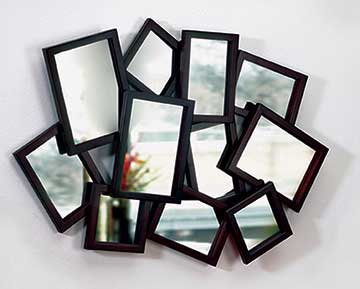From time to time, things happen that lead us to ask ourselves questions which have no easy answers. What are we doing? What does it all mean? Do we make a difference? Is there any point in continuing our work? The further we go with this line of questioning, the more likely we are to come to a point where we feel like we need to just shut down the analytical part of our minds and focus on the small tasks that get us through the day. Get up. Get ready. Take care of the household chores. Go to work. Deliver the lessons. Correct the homework. And so on. If we give all our attention to the details, we can keep ourselves sane and productive. But the moment we stop to think, we run the danger of losing ourselves. We’re forced to confront those difficult questions, the ones that have no easy answers.
Perhaps that’s why we fill our days with busy work, so that we avoid the spaces that make us look into ourselves and search for the larger (or even smaller) meaning of our work and our lives.
 But thinking deeply need not be a scary process, and it doesn’t always have to be about deep philosophical issues that often defeat even the most argumentative of us. Just peeling a few layers from our routine actions and interactions can help us see them more clearly and maybe lead us to see possibilities that we had previously ignored. It can give us answers to the most mundane things that we struggle with every day – Why do I get irritated by the students’ responses? Why do these children not participate in discussions despite my best efforts? How can I keep the children’s attention through the class? Thinking about such issues in a way that goes beyond the usual probes beneath the obvious can be quite rewarding.
But thinking deeply need not be a scary process, and it doesn’t always have to be about deep philosophical issues that often defeat even the most argumentative of us. Just peeling a few layers from our routine actions and interactions can help us see them more clearly and maybe lead us to see possibilities that we had previously ignored. It can give us answers to the most mundane things that we struggle with every day – Why do I get irritated by the students’ responses? Why do these children not participate in discussions despite my best efforts? How can I keep the children’s attention through the class? Thinking about such issues in a way that goes beyond the usual probes beneath the obvious can be quite rewarding.
This issue of Teacher Plus takes a look at the act of taking a good hard look – at ourselves, our processes, our products. We have tended to push the act of reflection into a space labeled “not suitable for busy people” and have instead adopted the “doing is everything” model of life. Good teaching is reflective. It is about thinking about the doing, and acting in a thoughtful manner. The viewpoints presented in this issue argue for making reflection part of the routine. It is, after all, the only way we can defeat the routine and also protect it.
